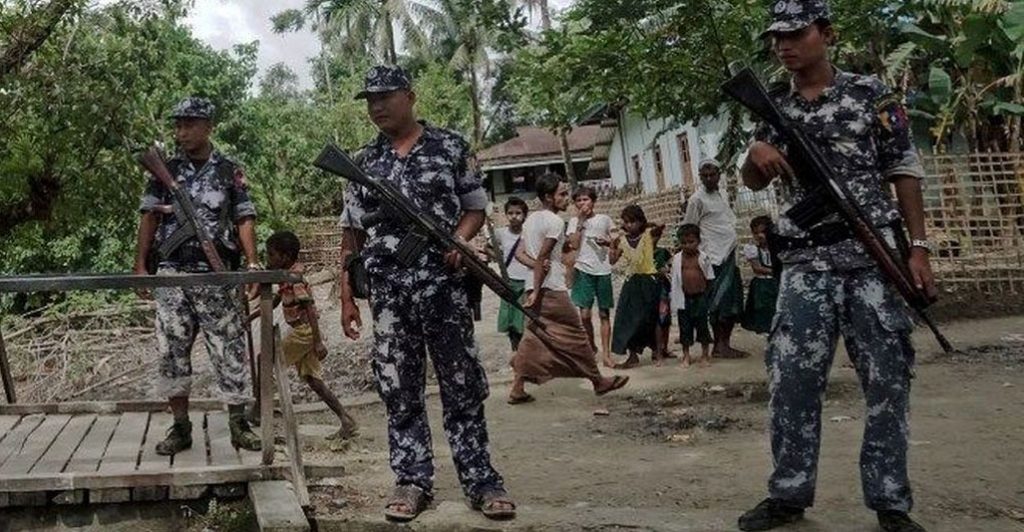Yangon: Myanmar has granted early release to seven soldiers jailed for the killing of 10 Rohingya Muslim men and boys during a 2017 military crackdown in the western state of Rakhine as per information provided by two prison officials. The soldiers were given prison sentences of 10 years each, but walked out of jail without even serving one year. The soldiers were freed in November last year, according to two inmates. The killings had taken place at Inn Din village.
Win Naing, the chief warden at Rakhine’s Sittwe Prison, and a senior prison official in the capital, Naypyitaw, confirmed that the convicted soldiers had not been in prison for some months. “Their punishment was reduced by the military,” said the senior Naypyitaw official, who declined to be named.
Military spokesmen Zaw Min Tun and Tun Tun Nyi declined to comment.
The seven soldiers were the only security personnel the military have said they have punished over the 2017 operation in Rakhine, which drove more than 730,000 Rohingya Muslims to flee to Bangladesh. The UN investigators had said the crackdown was executed with ‘genocidal intent’ and included mass killings, gangrapes and widespread arson.
Myanmar however, has always denied the widespread wrongdoing and officials have pointed to the jailing of the seven soldiers in the Inn Din case as evidence that security forces do not enjoy impunity.
Reached by phone Thursday, a man named Zin Paing Soe confirmed that he was one of the seven soldiers and that he was now free, but declined to comment further. “We were told to shut up,” he said.
The 2017 campaign was launched across hundreds of villages in northern Rakhine in response to attacks by Rohingya insurgents. Troops from the 33rd Light Infantry Division, a mobile force known for their brutal counter-insurgency campaigns, worked with members of a paramilitary police force and Buddhist vigilantes to drive out the entire Muslim population of Inn Din, burning and looting Rohingya homes and property, according to Buddhist and Muslim villagers and members of the security forces.
Soldiers and some villagers detained a group of 10 Rohingya members September 1, 2017. The military said the men were ‘terrorists’; their family members said they were farmers, high school students and an Islamic teacher.
The next morning, witnesses said, Buddhist villagers hacked some of the Rohingya men with swords. The rest were shot by Myanmar troops and buried in a shallow grave.
Two reporters from this agency, Wa Lone, 33, and Kyaw Soe Oo, 29, discovered the grave and obtained pictures of the 10 men before and after they were killed. The journalists were arrested in December 2017 while investigating the killings and later sentenced to seven years in prison under the Official Secrets Act. They were later freed this year.
In April 2018, after launching an investigation into the killings, the military announced that four officers and three soldiers of other ranks had been dismissed from the military and sentenced to 10 years with hard labour for ‘contributing and participating in murder’. Neither their names nor details of their roles in the killing were disclosed.
Two men who recently spent time in Sittwe Prison told this agency that the seven soldiers were well-known among prisoners there. “We were in the same building but different cells,” said one of the men, Aung Than Wai, a political activist, who spent nearly six months in prison under a privacy law after he criticised a state official and posted an image of the official online.
Sources also said that the convicted soldiers in Sittwe were given beer and cigarettes even though such indulgences were off-limits to other prisoners.
The soldiers were also visited by army officials, said the second man who was in the prison at the time and asked not to be named. In November, the seven men were taken away in a military vehicle, he said.
Reuters

